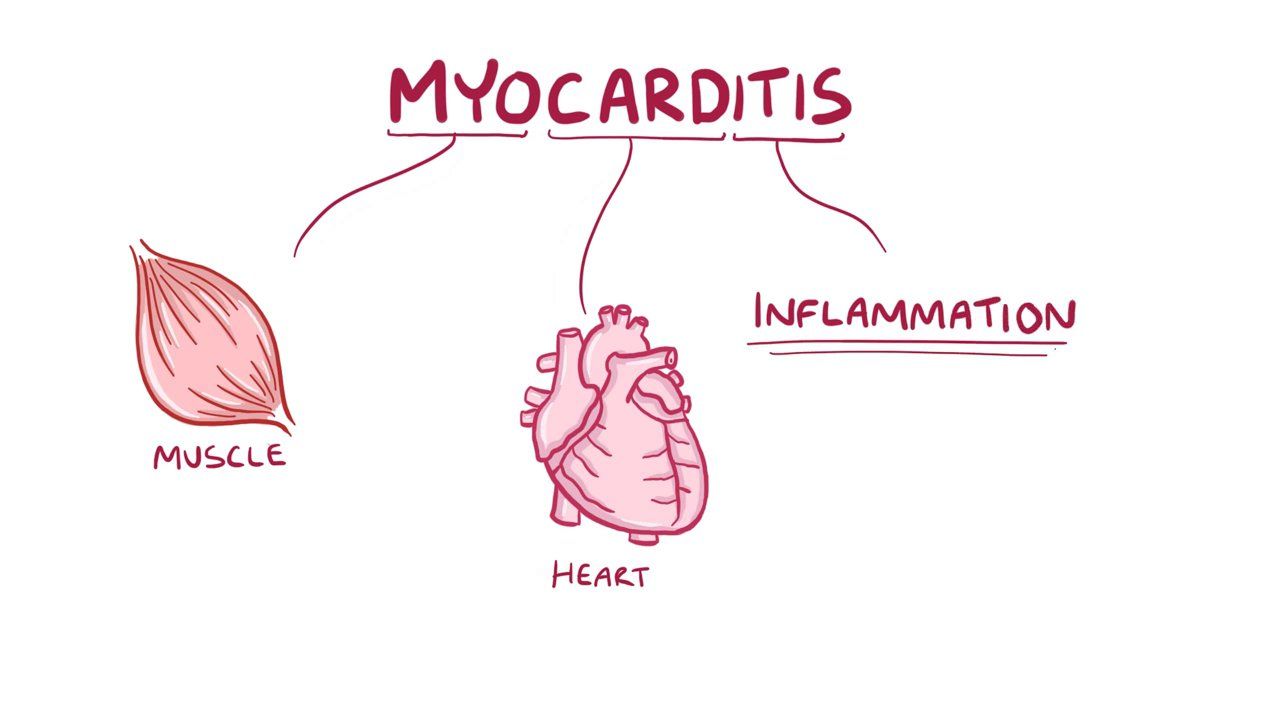Myocarditis is an inflammation of the myocardium of various etiologies that causes heart rhythm disorders interfering with the specific activity of the heart pump and affects especially young adults and children.
Myocarditis: etiology, symptoms and investigations
What are the causes of myocarditis?
Myocarditis is an inflammation of the myocardium of various etiologies that causes heart rhythm disorders interfering with the specific activity of the heart pump and affects especially young adults and children.
What are the causes of myocarditis?
The etiology of myocarditis is multiple, but the main causes involved in generating the specific symptoms of the disease are represented by:
- Viral infections with adenovirus, coronavirus, hepatitis B and C, parvovirus, herpes simplex virus, Epstein Barr, rubella or human immunodeficiency virus HIV; infections with a gastrointestinal starting point that can favor the occurrence of myocarditis are determined by echovirus
- The bacterial infections that cause myocarditis are determined by the genus Staphylococcus, Streptococcus, C. diphtherium and Borrelia
- The parasites represented by Trypanosoma cruzi and toxoplasmosis
- Fungal infections with different species of candida and molds of the Aspergillus type can cause myocarditis, especially in immunodeficient patients
- The administration of chemotherapy drugs used in the treatment of neoplasms and different types of antibiotics (sulfonamides, penicillin) as well as narcotics
- Exposure to chemical substances or radiation
- Autoimmune diseases with chronic evolution: Takayasu’s arteritis, disseminated lupus erythematosus, Wegener’s granulomatosis
- Heart transplant with graft rejection
Symptoms of myocarditis
The clinical picture of patients with this disease consists of symptoms represented by angina pectoris, dyspnea, heart rhythm disorders, peripheral and/or abdominal edema (ascites), fatigue and specific thrombotic phenomena in the case of endocavitary clot formation. Depending on the etiological agent that induces its appearance, the following symptoms may also be encountered: headache, fever, odynophagia, muscle and joint pain, altered general condition and diarrheal syndrome.
The main complications of the condition are represented by heart failure, heart attack, cerebral thromboembolism, life-threatening cardiac rhythm disturbances and death.
Depending on the clinical manifestations and the evolution of the patient’s general condition, myocarditis can be subclassified into the following categories:
- Fulminant myocarditis presents a rapid, unfavorable evolution, with the appearance of foci of cardiac necrosis as a result of accentuated inflammatory processes
- Acute myocarditis that evolves with ventricular damage and frequently causes dilated cardiomyopathy
- Active chronic myocarditis is represented by subsequent relapses of patients who presented a favorable initial therapeutic response; the recurrence of the disease favors the onset of heart failure in time
- Persistent chronic myocarditis is determined by chronic inflammation at the myocardial level and evolves with specific clinical symptoms for long periods without causing heart failure
- Myocarditis: etiology, symptoms and investigations Myocarditis: etiology, symptoms and investigations
Diagnosis of myocarditis
The diagnosis of the condition is suspected in the presence of the suggestive clinical examination of the patient and is confirmed using imaging investigations represented by echocardiography and cardiac nuclear magnetic resonance. Paraclinical investigations are represented by the electrocardiogram and laboratory analyses to determine the inflammatory syndrome or the presence of specific antibodies directed against the various viral and/or bacterial structures that generate inflammation of the myocardium, supporting the diagnosis of the disease by excluding other pathologies with similar symptoms.
Myocardial biopsy is performed to take heart tissue for cytological analysis that highlights specific inflammatory changes and tissue cultures on special growth media in the microbiology laboratory to obtain the microorganisms involved in the disease.
Treatment of myocarditis
Mild forms of myocardial inflammation benefit from symptomatic treatment and improve without the appearance of cardiac complications.
Cases with severe evolution of autoimmune myocarditis require the establishment of etiological drug treatment by administering corticosteroids and immunosuppressants to reduce inflammation and alleviate the patient’s symptoms. Antibiotics and antifungals are reserved for the bacterial and fungal etiology of the disease, while treatment with converting enzyme inhibitors, angiotensin receptor blockers, beta blockers and loop diuretics is applied in the presence of heart failure secondary to inflammatory processes.
Severe cases are treated by the administration of positive inotropic medication that aims to increase the contraction force of the myocardium and the use of special ventricular assist devices that replace the heart’s pump function. In cases unresponsive to treatment that progress to severe heart failure, heart transplantation may be necessary.
Find out more:


